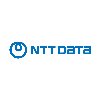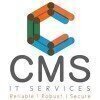1 Tivona Global Technologies Job
Associate Solution Architect
Tivona Global Technologies
posted 11mon ago
Job Role Insights
Flexible timing
Key skills for the job
Job Description
- Requirement Analysis: Collaborate with stakeholders to understand business requirements and data sources, and define the architecture and design of data pipelines to meet these requirements.
- Architecture Design: Design scalable, reliable, and efficient data pipelines to ingest, process, transform, and store large volumes of data from diverse sources, ensuring data quality and consistency.
- Technology Selection: Evaluate using POCs and recommend appropriate technologies, frameworks, and tools for building and managing data pipelines, considering factors like performance, scalability, and cost-effectiveness.
- Data Processing: Develop and implement data processing logic, including data cleansing, transformation, and aggregation, using technologies like AWS Glue, Batch, Lambda
- Data Storage: Design and implement data storage solutions, including data lakes, data warehouses, and NoSQL databases, to store and manage data for analysis and reporting.
- Data Integration: Integrate data pipelines with external systems, APIs, and services to automate data workflows and ensure seamless data exchange between systems.
- Monitoring and Logging: Implement monitoring and logging solutions for data pipelines using tools like AWS CloudWatch to ensure data pipeline health and performance.
- Security and Compliance: Ensure data pipeline architecture complies with security best practices and regulatory requirements, implementing encryption, access controls, and data masking as needed.
- Documentation: Create and maintain documentation for data pipeline architecture, design, and implementation, including diagrams, data flow descriptions, and operational procedures.
- Collaboration: Collaborate with cross-functional teams, including data engineers, data scientists, and business analysts, to understand their requirements and integrate data pipelines into their workflows.
- Continuous Improvement: Stay updated with the latest trends, tools, and technologies in data engineering and data pipeline architecture, and continuously improve data pipeline processes and methodologies.
Desired Skills Requirement
- Data Engineering Understanding of data engineering concepts and principles including data ingestion processing transformation and storage using tools and technologies such as AWS Glue Batch Lambda
- Data Modeling Knowledge of data modeling techniques and best practices for designing efficient and scalable data pipelines including dimensional modeling star schemas and snowflake schemas
- Programming Languages Proficiency in programming languages commonly used in data engineering such as Python Java or Scala as well as experience with SQL for data querying and manipulation
- Cloud Computing Proficiency in using AWS cloud services for data pipeline architecture and implementation
- Data Integration Understanding of data integration techniques and tools for integrating data from various sources including batch and realtime data integration and experience with ETL Extract Transform Load processes
- Database Systems Knowledge of database systems including relational databases eg MySQL PostgreSQL and NoSQL databases eg MongoDB Cassandra and experience in designing and managing database schemas
- Data Governance Awareness of data governance principles and practices including data quality data lineage and data privacy and ability to ensure compliance with relevant regulations and standards
- Problemsolving Skills Excellent problemsolving skills with the ability to analyze complex data pipeline requirements and design solutions that meet business needs
- Communication and Collaboration Strong communication and collaboration skills with the ability to effectively communicate technical concepts to nontechnical stakeholders and work effectively in a team environment
- Learning Agility A commitment to continuous learning and staying updated with the latest trends tools and technologies in data engineering and data pipeline architecture
- Academic Qualification and Industry Experience
- Bachelor s Degree A bachelor s degree in Computer Science Software Engineering or a related field is often preferred although equivalent experience and certifications can also be valuable Experience with Financial domain knowledge is a plus
- At least 7 years of experience in solutions architecture software development or any other related field
Employment Type: Full Time, Permanent
Read full job description What people at Tivona Global Technologies are saying
What Tivona Global Technologies employees are saying about work life
based on 7 employees
Flexible timing
Monday to Friday
No travel
Similar Jobs for you
Share an Interview






























